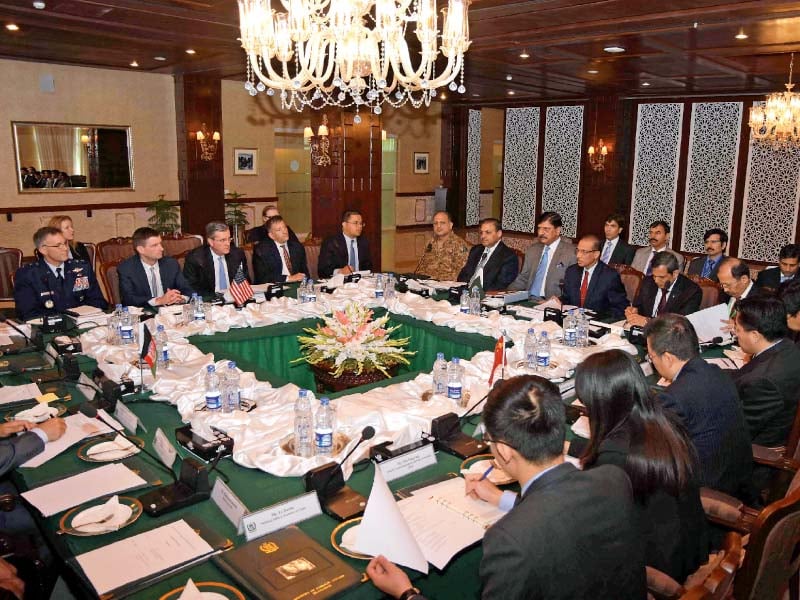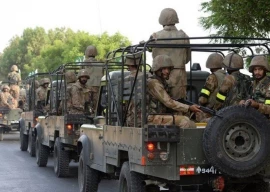
The apparent compromise agreement was reached during the latest meeting of the Quadrilateral Coordination Group (QCG), formed in December last year to lay a road map for the Afghan peace talks.
The fifth meeting of the QCG held after a gap of almost three months after efforts to revive peace talks ran into trouble due to differences between Pakistan and Afghanistan as well as a surge in violence.
Wednesday’s talks were hosted by Foreign Secretary Aizaz Ahmed Chaudhry and attended by US Special Envoy for Afghanistan and Pakistan Richard Olson, Chinese Special Representative Deng Xijun and Afghan Ambassador to Pakistan Omar Zakhilwal.
The absence of the Afghan deputy foreign minister, who attended the previous round of talks, suggested that Kabul has little faith in the ongoing QCG efforts.
Another sign that the latest meeting of QCG was a low key affair could be judged from the fact that unlike previous sessions, this time even the state-run PTV was not invited for coverage.
The move appears to indicate serious differences among the group involved in the Afghan peace process. It is believed that the QCG divided into two groups.
While the United States and Afghanistan are calling for more decisive action against groups such as Haqqani network, Pakistan and China are still adamant that the peace process must be given a chance. At the end of the fifth round, Pakistan and China seemed to have prevailed over the US and Afghanistan as joint statement termed the peace process as the only way forward to end violence in Afghanistan.
The QCG reiterated that violence serves no purpose and that peace negotiations remain the only option for a political settlement. In this respect, QCG countries reaffirmed to use their respective leverages and influences, according to the joint statement.
However, in an effort to accommodate Afghanistan’s concerns, the QCG while strongly condemning the April 19 Kabul attack warned that “those who perpetrate such acts of terrorism should be ready to face the consequences of their actions.”
Afghanistan believes that Kabul attack in which 64 people were killed was orchestrated by the Haqqani network. Following the deadly attack, Afghanistan’s President Ashraf Ghani said Pakistan should deliver on its promise to take action against the Haqqani network. Just ahead of the QCG meeting, the Afghan ambassador also stated that his country would push for declaring the Taliban as ‘irreconcilable’ since they refused to join the process.
However, Pakistan is not yet convinced by Afghan’s view and still insists for pursuing the dialogue process. In a policy statement recently, Prime Minister’s Adviser on Foreign Affairs Sartaj Aziz told the Senate that Pakistan had been impressing upon US and Afghan side that the reconciliation process needed to be given a fair chance and more time.
“Irreconcilable elements can be targeted after concerted efforts of negotiations have failed,” the Adviser argued. While the QCG expressed their continued determination with shared commitment to advance the goal of an Afghan-led, Afghan-owned peace and reconciliation process, there was no announcement regarding the resumption of fragile peace talks anytime soon.
The process of negotiations broke down in July last year after the confirmation of the death of Taliban Supreme Leader Mullah Muhammad Omar.
Published in The Express Tribune, May 19th, 2016.









1732523125-0/Express-Tribune-(7)1732523125-0-270x192.webp)







COMMENTS
Comments are moderated and generally will be posted if they are on-topic and not abusive.
For more information, please see our Comments FAQ